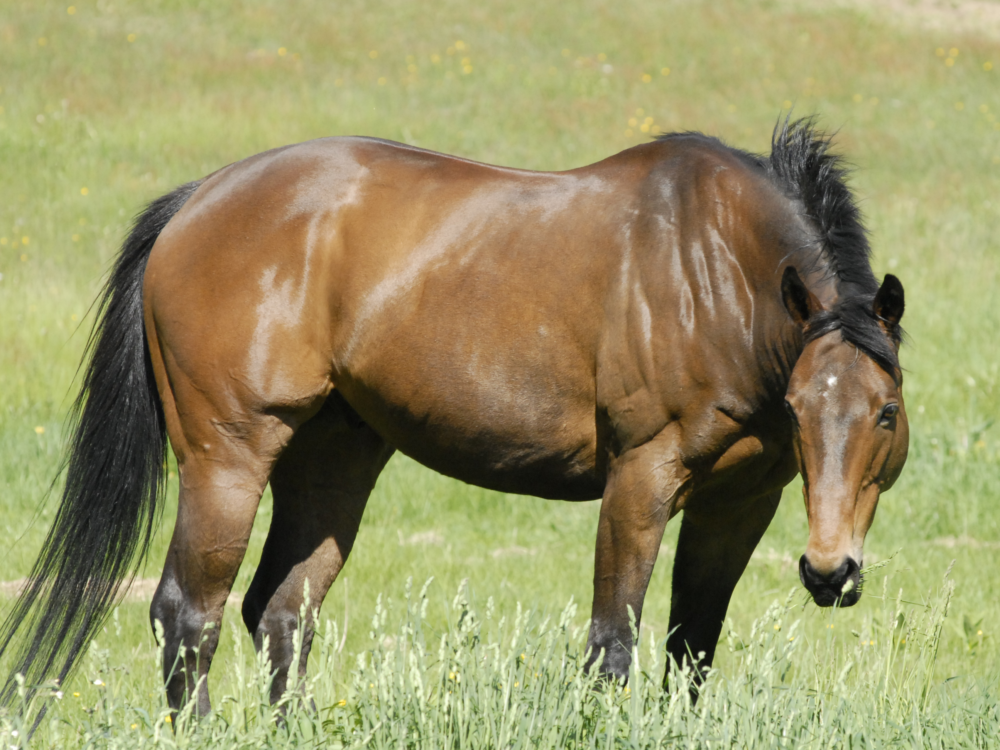Diarrhea is a common digestive disorder affecting horses, can be a concerning and discomforting issue for all horse owners. While some cases of diarrhea may be mild and transient, others can pose serious health risks if left untreated.
In this article, we delve into the causes of diarrhea in horses and explore various treatment options, including the potential role of probiotics in managing this condition.
Causes Of Diarrhea In Horses
Diarrhea in horses can arise from a variety of underlying factors. Some horses might experience mild diarrhea due to changes in diet, stress, or exposure to contaminated water. However, it’s crucial to note that diarrhea can also be a symptom of more serious health issues. Viral and bacterial infections, such as equine coronavirus and salmonella, can lead to severe diarrhea and potentially life-threatening complications. Parasitic infections, ingestion of toxic substances, and gastrointestinal disorders can also trigger diarrhea in horses.
Treatment Approaches
Effective management of diarrhea in horses involves identifying the underlying cause and tailoring treatment accordingly. Mild cases of diarrhea, often resulting from dietary changes or minor stress, may resolve on their own with proper supportive care. Ensuring access to clean, uncontaminated water, providing a consistent and balanced diet, and minimizing stressors can aid in resolving these cases.
It is important to review the whole diet nutrient levels in particular fibre, sugar and starch. These nutrients have an impact on the hindgut and without addressing these first, then the underlying causes maybe missed. Further digestive support in the form of a digestive supplement for horses containing live probiotics will be the first treatment option in most cases.
However, when diarrhea persists or becomes severe, veterinary intervention is paramount. A thorough examination by a veterinarian may include diagnostic tests such as fecal analysis, blood work, and imaging to pinpoint the exact cause of the diarrhea. Based on the diagnosis, appropriate treatment strategies can be employed.
Role Of Probiotics
Probiotics, defined as live microorganisms that confer health benefits when administered in adequate amounts, have gained attention in recent years as a potential tool for managing equine diarrhea. These beneficial bacteria can help restore and maintain a healthy balance of gut microflora, which is essential for proper digestion and overall well-being.
In cases of diarrhea, probiotics may offer several potential benefits. They can aid in stabilizing gut microflora, reducing inflammation, and enhancing the gut’s barrier function. By promoting a healthy gut environment, probiotics may contribute to a faster recovery from diarrhea and prevent future episodes. A diet rich in fibre and low in sugar and starch is essential for gut health. Furthermore due to the negative effects of antibiotics on the gut environment, a probiotic strain resistant to these effects is Saccharomyces boulardii. CEN XtraBalance, part of our horse supplements range, contains an encapsulated version of Saccharomyces boulardii as part of its 6 in 1 digestive support formula.
Conclusion
Diarrhea in horses is a multifaceted condition that can arise from various causes, ranging from minor dietary changes to more serious infections and gastrointestinal disorders.
Due to the stressful nature of travel and competition, a horse can achieve the optimal digestive support through high fibre, low sugar and starch feeding foundations alongside quality digestive supplement support .
When a severe condition arises, timely veterinary care, accurate diagnosis, and appropriate treatment are essential for effectively managing the severe conditions. Probiotics, with their potential to support gut health and restore a balanced microbiome, may offer a complementary approach to traditional treatments in certain cases.
With proper care and attention, horses can recover from all digestive conditions, particularly diarrhea and regain their optimal health and vitality.
By Bryan Meggitt (BMedSc. PGCrtMedSc.)
Blood Scientist and Co-founder of CEN Horse Nutrition
References:
- Desrochers AM, Dolente BA, Roy MF, Boston R, Carlisle S. Efficacy of Saccharomyces boulardii for treatment of horses with acute enterocolitis. J Am Vet Med Assoc. 2005 Sep 15;227(6):954-9. doi: 10.2460/javma.2005.227.954. PMID: 16190596.
- Boyle AG, Magdesian KG, Durando MM, Gallop R, Sigdel S. Saccharomyces boulardii viability and efficacy in horses with antimicrobial-induced diarrhoea. Vet Rec. 2013 Feb 2;172(5):128. doi: 10.1136/vr.100833. Epub 2012 Nov 16. PMID: 23161811.
- Agazzi, A, Ferroni, M, Fanelli, A, Maroccolo, S, Invernizzi, G, Dell’Orto, V, & Savoini, G 2011, ‘Evaluation of the Effects of Live Yeast Supplementation on Apparent Digestibility of High-Fiber Diet in Mature Horses Using the Acid Insoluble Ash Marker Modified Method’ Journal of Equine Veterinary Science, vol. 31, no. 1, pp. 13–18, doi: 10.1016/j.jevs.2010.11.012.
- Marteau PR, de Vrese M, Cellier CJ, Schrezenmeir J. Protection from gastrointestinal diseases with the use of probiotics. Am J Clin Nutr. 2001 Feb;73(2 Suppl):430S-436S. doi: 10.1093/ajcn/73.2.430s. PMID: 11157353.

